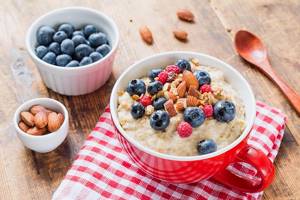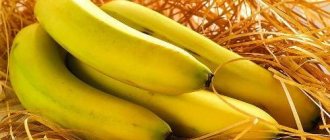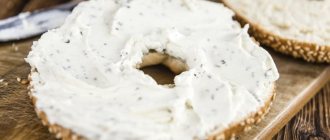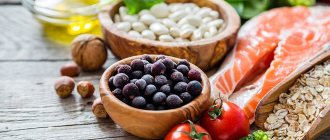Diabetes and its complications have long occupied a high place in the ranking of causes of high mortality. Insufficient physical activity and unhealthy diet are the main factors in the development of type 2 disease - non-insulin dependent. It affects mainly adults, but this pathology also occurs in children. Excessive consumption of sweets increases the risk of developing type 2 diabetes many times over.
Bad childhood habits
Simple carbohydrates: lactose, fructose, glucose, are found in many foods. But when entering the body along with natural food, they do not disrupt the endocrine functions of the pancreas and are successfully absorbed. The most famous carbohydrate concentrate is sugar. This product is popular due to its low cost and ease of use. A pleasant sweet taste makes any food much more attractive. Even babies understand this, eagerly devouring cereals, mixtures and juices flavored with sugar.
In the food industry, there are several directions for the development and production of various sugar-containing foods. People become familiar with confectionery and sweet drinks in the first years of life. Treats are not just food. This is entertainment, a way to brighten up troubles and worries, and lift your spirits. It is customary to give sweets, cakes and chocolate for the holidays, give them as rewards to children, lemonade, fruit “nectars” to quench thirst. A mug of coffee or tea with sugar for breakfast, lunch, dinner and every work break is also common.
Sugar is part of universal culture and is eaten in large quantities every day. To improve the taste, it is even added to semi-finished meat products, canned food and dietary products. It is not surprising that people perceive an excess of carbohydrates in the diet as the norm. No one considers people with a sweet tooth to be sick, unlike smokers and alcoholics. And in vain. After all, every extra candy or cake tests the strength of the endocrine system.
Eating sweets on an empty stomach will lead to diabetes
The food we are used to having for breakfast can be dangerous on an empty stomach. An American nutritionist has compiled a black list of foods that should not be eaten on an empty stomach.
Subject: Health
For many people, breakfast, especially when there is no time to prepare it, is a cup of coffee with a chocolate bar or a bun. However, according to doctors, eating sweets is an extremely unhealthy way to start the day. Famous nutritionist from the USA Christopher Garner
named foods that are not recommended to be eaten on an empty stomach. We are talking not only about breakfast, but also about any other meal when the break between meals lasted more than four hours. So, what not to start with a meal or even a small snack.
1. Yeast baked goods
A hungry person, according to Garner, should refrain from baking with yeast, as it provokes bloating and other unpleasant sensations. If you really want a bun, then eat it after a serving of vegetables or protein.
2. Sweets, including fruits
When, barely waking up, a person drinks a sweet drink, eats a ripe banana or a couple of candies, the pancreas begins to actively produce insulin, under the influence of which the jumping level of glucose in the blood drops sharply, and we feel tired, drowsiness and apathy. So you won’t be able to cheer yourself up with sweets for more than 20 minutes.
But this is not the only problem. A sharp release of insulin provoked by sweets is already a problem in itself. A person has a certain genetically determined number of beta cells that synthesize insulin, explains endocrinologist Yana Solovyova
. They die off after producing a certain amount of this hormone. If you do not put excessive stress on the pancreas, beta cells will live longer. This will help delay or even prevent the development of diabetes.
“If you start eating sweets after breakfast, insulin production will remain within normal limits.”
, says Dr. Solovyova.
3. Citrus
Citrus fruits are also included in the prohibited list: they, according to an overseas specialist, will harm the gastric mucosa and, if abused, can cause allergies or gastritis. This is especially true for people with high stomach acidity.
4. Persimmon, pear and garlic
Garner does not recommend eating persimmons and pears on an empty stomach due to their high fiber content, which can injure the gastrointestinal tract. Finally, forget about garlic and chili peppers on an empty stomach: they are very irritating to the walls of the stomach and gallbladder.
Zinaida Medvedeva
Zinaida Medvedeva, executive director of the National Research Institute:
– The feeling of hunger is a signal from the body that energy is running out. Our brain receives it in advance so that there is time to search for food. But what happens if we eat candy or chocolate in response to the first attack of hunger? Glucose enters the blood almost immediately, and the feeling of hunger disappears. But the pancreas immediately releases insulin into the blood, which binds glucose, and the feeling of hunger returns! A vicious circle arises. At the same time, the body's real need for energy is lower than the calories we receive, and the excess is stored as fat. Regularly eating sweets on an empty stomach can lead to diabetes. If you're feeling a little hungry, try a healthy snack: a whole grain sandwich with a plant-based spread or a handful of nuts. It’s even better to wait an hour and a half and eat a full meal.
Mechanism of development of diabetes mellitus
The first type of disorder occurs acutely: the pancreas stops producing insulin in the required volume and the glucose entering the blood is not absorbed. This condition is manifested by characteristic symptoms:
- sudden weight loss;
- heavy sweat;
- frequent urination;
- constant thirst;
- loss of appetite.
Patients experience severe weakness and trembling in the body. Most cases of insulin-dependent diabetes have a genetic cause and develop in childhood or adolescence. Large amounts of simple carbohydrates in such people can cause glycemic coma. For a normal life, they need regular hormone injections and a special therapeutic diet:
- with a large proportion of lean protein: fish, meat, seafood;
- normalized content of complex carbohydrates: cereals, bread, vegetables.
Sugar ceases to be a food product for diabetics. In rare cases, it is prescribed as a means to eliminate hypoglycemia.
Type 2 disease is more insidious than insulin-dependent diabetes. It develops much more often, more slowly, and is chronic and almost asymptomatic. Its main victims are adults. Excess sugar and starch in the diet is a major risk factor. Combined with a lack of physical activity and frequent stress, an unhealthy diet can cause chronic diabetes in almost everyone.
For several years, people who become ill usually do not worry and continue to consume sweet baked goods, fast food, candies and other delicacies. A clear sign of trouble in the body is excess weight; most people do not consider it a problem.
Resistance - decreased sensitivity to insulin and high glucose levels are often detected by chance. If it is not compensated in time, after a few years complications develop against the background of excess sugar:
- impaired blood supply to the extremities and eyes;
- atherosclerosis;
- diseases of the cardiovascular system.
Over time, these conditions can lead to disability. The good news is that type 2 diabetes is easier to control. At an early stage, it can be successfully treated, and pathological changes in the body are inhibited.
How to fight the desire for sweets after eating
Anna Belousova
August 29, 2016
After lunch or dinner you almost always crave something sweet. And this has nothing to do with the amount of food eaten. Meanwhile, constant snacking on sweets allows you to exceed your daily calorie intake by one and a half times. Many obese people who claim that their excess weight is the result of endocrine and other diseases are mistaken. About 60% of obese people “put on” their own pounds. Excess weight does not accumulate immediately, but gradually, due to improper or excessive nutrition. And various bakery products, including cakes, play an important role in this. Sweets eaten after a full meal are difficult to digest on their own and complicate the absorption of everything else.
Often, you crave sweets after eating out of habit. Since childhood, our mothers and grandmothers taught us to eat soup and second course, promising in return a prize - candy or cookies. In an effort to feed us healthy food, they hardly imagined that the child would develop the habit of eating sweets for the main food. But you can fight this desire by consciously refusing something sweet after lunch. Some of the afternoon sweet tooth lovers were a little less fortunate. Many diseases, such as hypoglycemia, metabolic and digestive disorders, can cause the need to periodically “sweeten up”. Also, the desire to eat sweets after a meal may arise if there are not enough vivid impressions and emotions. Probably everyone has noticed that during the most active and vibrant periods of life, one’s hands do not even reach for candy. Substances found in sweets contribute to the production of serotonin, which gives us a feeling of happiness and good mood. Sports activities have the same effect, however, they are much healthier. Although sometimes, instead of jogging, you can eat a couple of chocolates or cookies, the calories in which do not exceed two hundred kilocalories. You should not overeat sweets: a large amount of simple carbohydrates entering the blood sharply increases insulin, which entails the storage of fat in the body. In the fight against the habit of eating sweets after lunch, in no case should you completely give up sweets, including sugar. After all, as you know, the forbidden fruit is sweet. Sugar is a carbohydrate and an important source of energy for the body. Therefore, it will not be possible to completely exclude it from the diet without harm to health. It is better to gradually reduce the amount of sweets you eat or replace them with healthier ones. For example, dried fruits, honey, marshmallows and marmalade are an excellent substitute for cakes and sweets. You can make delicious and healthy candies yourself. Cooked with your own hands, they will be even tastier. For such sweets we will need: 200 grams of dates, dried fruits (raisins or dried cranberries), 200 grams of nuts (for example, 100 grams of cashews and 100 grams of almonds), coconut or sesame oil in the amount of three tablespoons and coconut flakes, also about two hundred grams . Before starting cooking, you need to remove the pits from the dates. Then grind dried fruits, dates and nuts in a blender bowl. Combine the crushed ingredients with coconut or sesame oil and mix thoroughly. Roll small balls from the resulting mass and roll them in coconut flakes. Place in the refrigerator for at least three hours. After time, you can enjoy this dessert. Food should not be the meaning of life, and sweets should not end every meal. If you give up your daily intake of sweets, you can not only get a beautiful and slim figure and a healthy gastrointestinal tract, but also increase your performance, improve brain activity and stabilize the functioning of your nervous system. And the money saved on extra sweets can be spent on travel, necessary things and gifts for loved ones.
Anna Belousova
Tags:
- Nutrition
- Sweets
How to combine eating sweets so that there is no harm to the body
Sweets are simple carbohydrates that can quickly saturate the body, raise insulin levels, and after half an hour the sugar drops and the desire to eat returns. But the food eaten in this case is converted into fat deposits and all thanks to insulin released into the blood. So if the question of whether it is possible to spoil your appetite with sweets is still on the agenda, then the answer is unequivocal - yes!
Oddly enough, sweets are also good for the body, but you must adhere to certain rules:
- Small doses of sweets can stimulate the taste buds. One piece of candy half an hour before a meal won’t make a difference, but half a kilo will definitely kill your appetite.
- Sweets with fiber are an excellent snack option. Such a snack can be fruits: apples, strawberries, banana. In combination with nuts, such food, although it dulls appetite, does not allow insulin to rise.
- Use a trick. Feed your child porridge, but add dried fruits, nuts, and honey to it. The child will be happy with sweets, but the body will be completely satisfied with the nutritional composition.
- Add some protein to every meal. Protein helps reduce glycemia and contributes to the harmonious formation of the child’s body.

Remember that in matters of child nutrition, you cannot leave everything to chance.
Nutrition should be balanced, and sweets should always be under control. Even if the child makes a pleading face, and your parental heart wants to pamper the baby, pull yourself together, you are responsible for his health. Dose out sweets, replace them with fruits more often and your baby will be healthy, happy and with an excellent appetite. leave a comment
A nutritionist's opinion on why you crave sweets after eating
Excess weight usually appears due to non-compliance with the caloric intake of the diet. Sweets play a big role in gaining kilograms . Many have noticed that after a hearty and satisfying lunch, there is a desire to drink tea with something tasty. It is precisely eating sweets and cakes on a full stomach that often leads to the scale showing too high a number. A nutritionist explained why you crave sweets after eating.
And here is more information about why you can’t eat at night.
Dehydration
Many people do not meet their daily fluid intake. This often leads to mild dehydration during meals. The lack of fluid is especially felt if dry, salty or protein foods predominate.
The water that a person drinks during the day enters the intestines to dilute digestive juices. When dry foods and foods high in protein enter the stomach, they are treated with fairly liquid gastric juice. But as it moves into the intestines, more water is required, so the cells begin to suffer from thirst. The body sends a signal to the brain that fluid is needed. But for some reason, a person perceives this as a desire to eat something sweet.
Therefore, the nutritionist recommends drinking enough water throughout the day, especially mineral water.
Poor nutrition
An unbalanced diet often causes the desire to eat sweets after lunch. The daily menu should contain a sufficient amount of fats, carbohydrates, proteins and fiber. If the balance between them is not maintained, the body tries to replenish it with the help of sweet foods.
Saturation is directly related to blood glucose levels. A person begins to experience hunger when the concentration of this substance decreases. After a full lunch, glucose levels begin to gradually rise again. Usually, in this case, there should be no desire to replenish energy reserves with the help of fast carbohydrates, that is, sweets. Otherwise, there is a suspicion that the diet is not balanced.










